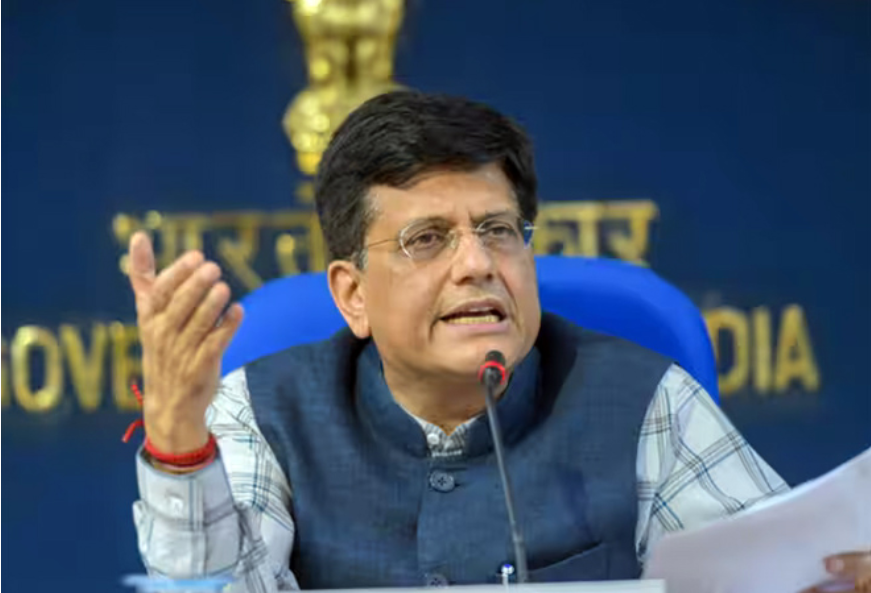
The G20 Trade and Investment Ministers Meeting (TIMM) concluded in Jaipur on 25 August 2023. The Outcome document from the Ministers meeting highlighted key areas of cooperation including, Trade for Growth and Prosperity, WTO Reform, and Logistics for Trade. Most notably, the document highlighted five deliverables, namely, the G20 Generic Mapping Framework for Global Value Chains (GVCs), the Jaipur Call for Action for enhancing access to information for Micro Small and Medium Enterprises (MSMEs), the High-Level Principles on digitalisation of trade documents, the development of a Presidency’s Compendium of best practices on Mutual Recognition Agreements (MRAs) for Professional Services, and the suggestion to hold a G20 Standards Dialogue in 2023.
Businesses adopted new risk management practices for securing their supply chains, including greater upstream and downstream integration as well as diversification.
In a post-COVID world that has witnessed critical supply chain disruption, the G20 Generic Mapping Framework for GVCs proposes coordination and preparedness to limit future disruption of value chains. It seeks to identify vulnerabilities and build more resilient value chains by proposing high level principles including analysis, collaboration, coordination, preparedness, inclusion, and sustainability. The framework also lays emphasis on increased participation and greater value generation by Least Developed Countries (LDCs) in GVCs. While this framework remains voluntary and non-binding, it lays down the guiding principles for a coordinated effort to create more resilient value chains. In October 2021, supply chain turmoil was identified as the “greatest threat” to growth for the company and the country’s economy by corporate CEOs. This threat was considered greater than geopolitical instability, the pandemic, and labour shortages. Businesses adopted new risk management practices for securing their supply chains, including greater upstream and downstream integration as well as diversification. For example, an American apparel company acquired a logistics company in a bid to give the apparel retailer greater control of its supply chain. Similarly, other companies looked at diversification and relocation strategies to make their supply chains more resilient. Many economies in the Global South, including India, continue to benefit from this reconfiguration of supply chains. As reliable partners in GVCs, India and other G20 countries play a key role in shaping the discourse around creating robust value chains. It, therefore, remains crucial for countries to coordinate their efforts and share information to build robust supply chains.
MSMEs are engines of job creation that generate livelihood opportunities especially for groups in vulnerable situations.
Second, the Jaipur Call for Action to enhance MSMEs’ access to information seeks to make trade-related information more accessible to MSMEs and thus integrate them further in international trade. The United Nations (UN) notes that “MSMEs account for 90 percent of businesses, 60 to 70 percent of employment and 50 percent of GDP worldwide”. Despite their contribution to global GDP, MSMEs continue to face many challenges in doing business. The Jaipur Call for Action reflects the common challenge of information asymmetry faced by MSMEs, which hinders their participation in international trade. This call for action will be implemented through an upgrade of the Global Trade Helpdesk implemented by the International Trade Centre (ITC), the United Nations Conference on Trade and Development (UNCTAD) and the World Trade Organization (WTO). Thus, the participating countries can provide the Global Trade Helpdesk with “appropriate aggregated trade-related information relevant for MSMEs available on a single portal and/or a non-exhaustive list of links to relevant government websites for MSMEs engaged in trade”. Further, beginning from 2024, the ITC will also provide an Annual Progress Report to its Joint Advisory Group on the efforts made with regard to the call for action. MSMEs play a key role in achieving the UN Sustainable Development Goals (SDGs), particularly, Goal 8 concerning ‘Decent Work and Economic Growth’. In India, MSMEs make up 90 percent of businesses, and employ more than 120 million people. MSMEs are engines of job creation that generate livelihood opportunities especially for groups in vulnerable situations. Thus, the Call for Action to enhance MSMEs’ access to information will further integrate these enterprises in international trade and can have an overall positive effect on the livelihoods of people as well as on national economies.
The document mentions that the G20 countries will make efforts to implement these principles and also encourage other countries to consider them.
Third, the High-Level Principles on Digitalization of Trade Documents are ten non-binding principles that guide the efforts undertaken by countries to digitize trade documents. These include neutrality, security, trust, interoperability, data privacy, reliability, voluntary data sharing, collaboration, traceability, and scalability. The shift to digital is noted as “a transformative opportunity”. The outcome document specifies that “the trade documents covered by these Principles relate to international commercial transactions pertaining to transport, payments, insurance, storage, and related logistics services; the principles do not necessarily apply to government documents issued, controlled or required by a government authority for cross-border trade”. The document mentions that the G20 countries will make efforts to implement these principles and also encourage other countries to consider them. The document recognizes the challenges that some countries may face in this transition, including lack of digital infrastructure, limited digital connectivity, high digital adoption costs, and a digital skills gap, particularly among MSMEs. While these principles are not binding, digitization is expected to monetarily benefit economies. A report estimates that “an electronic bill of lading could save $6.5 billion in direct costs and enable $40 billion in global trade”. Despite increasing digital adoption across the globe, trade processes continue to rely on paper documents. These documents are more prone to errors and can cause delay in consignments due to manual processing thus increasing logistics costs. By digitizing trade documents, countries can increase international trade, streamline regulatory compliance and even make supply chains more resilient. Thus, the High-Level Principles on Digitalization of Trade Documents serve as guiding principles for countries to coordinate their efforts while digitizing trade documents. This will ensure that digital documents will have mutual recognition and interoperability. These principles can also help in shaping global standards as countries digitize documentation. India too has focussed on digitising its trade documentation processes. India’s latest Foreign Trade Policy lays an emphasis on digitization of trade documents and paperless filing.
Countries within the G20 as well as those outside of the grouping stand to benefit a great deal from the deliverables agreed at the G20 Trade and Investment Ministers Meeting.
In addition to the abovementioned deliverables, the G20 trade and investment ministers also welcomed the “voluntary sharing of best practices on Mutual Recognition Agreements (MRAs) for professional services and supported the development of a Presidency’s Compendium of Best Practices on MRAs for Professional Services” and also “welcomed the Presidency’s suggestion to hold a G20 Standards Dialogue in 2023”.
Countries within the G20 as well as those outside of the grouping stand to benefit a great deal from the deliverables agreed at the G20 Trade and Investment Ministers Meeting. Some of the points mentioned in the Outcome Document have been long-pending issues at the global level. These action-oriented deliverables can facilitate business and increase international trade among countries. The deliverables lay the foundation for creating common standards that countries can adhere to while formulating domestic policies, and are reflective of countries’ willingness to work together and take coordinated actions.
Urvi Tembey is an Associate Fellow with the Observer Research Foundation
The views expressed above belong to the author(s). ORF research and analyses now available on Telegram! Click here to access our curated content — blogs, longforms and interviews.




 PREV
PREV


